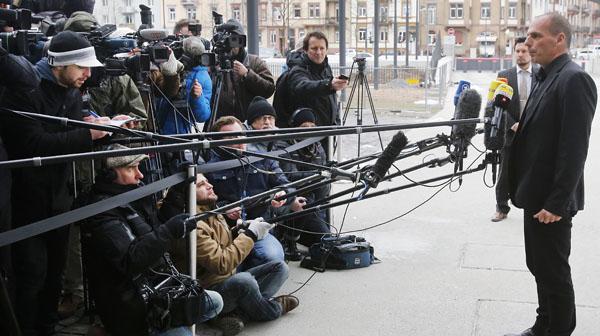You are here
IMF response to European crisis ‘uneven’ — Watchdog
By AP - Jul 28,2016 - Last updated at Jul 28,2016
WASHINGTON — The International Monetary Fund (IMF) was unprepared for the debt crisis that hit Europe and was slow to press for debt relief that might have eased Greece's economic pain and allowed it to pay its bills, an IMF watchdog says.
In a report released Thursday, the Independent Evaluation Office declared the IMF's response "uneven". The watchdog also suggested that the fund's decision making was vulnerable to political pressure — a charge that IMF chief Christine Lagarde rejected.
The 2008 financial crisis left European countries with enormous debts and weak banks. As part of a so-called troika with the European Commission and the European Central Bank, the IMF bailed out Greece, Ireland and Portugal in 2010-2011.
Greece has continued to struggle with high debts. To get the bailout money, Greece agreed to budget cuts and tax increases, which drove the economy into a deep recession and made it even harder to pay its debts. The IMF was overly optimistic about Greece's economic prospects, the report said.
IMF policymakers, used to assisting poor, developing world countries, "did not foresee the magnitude of the risks" in wealthy Europe. Their "'Europe is different' mindset" prevented them from realising that investors would react to the debt problems by dumping European bonds, driving up interest rates in troubled countries and making their debt problems worse, the evaluation office said.
The IMF is not supposed to lend to countries whose debts are unsustainable. Analysts at the fund were divided over whether Greece's 2010 deal — trading bailout money for painful reforms — would leave it able to pay its bills. But the IMF went along with the original bailout "even though its sovereign debt was not deemed sustainable with a high probability", the report said.
The watchdog questioned whether IMF analysts buckled to political pressure from their troika partners, who wanted to provide the bailouts without offering Greece any debt relief.
It recommended that the IMF take steps to "minimise the room for political intervention" in the future. But IMF Managing Director Lagarde rejected the idea, saying in a statement that she did "not accept the premise of the recommendation... and thus do not see the need to develop new procedures".
The IMF is now calling for Greece's creditors to restructure the country's debts and has refused so far to go along with additional bailouts unless they include debt relief.
The Independent Evaluation Office is a Washington-based independent agency set up in 2001 to investigate IMF activities.
Related Articles
FRANKFURT () — Eurozone ministers approved the launch of Greece bailout talks and the European Central Bank (ECB) boosted its cash lifeline
Greece's new leftist government appealed to the European Central Bank (ECB) on Wednesday to keep its banks afloat as it seeks to negotiate debt relief with its eurozone partners, but Germany rejected any rollback of agreed austerity policies.
BRUSSELS — Greece on Monday agreed to compromise on new bailout reforms in a bid to break a deadlock with its EU- International Monetary Fun


















